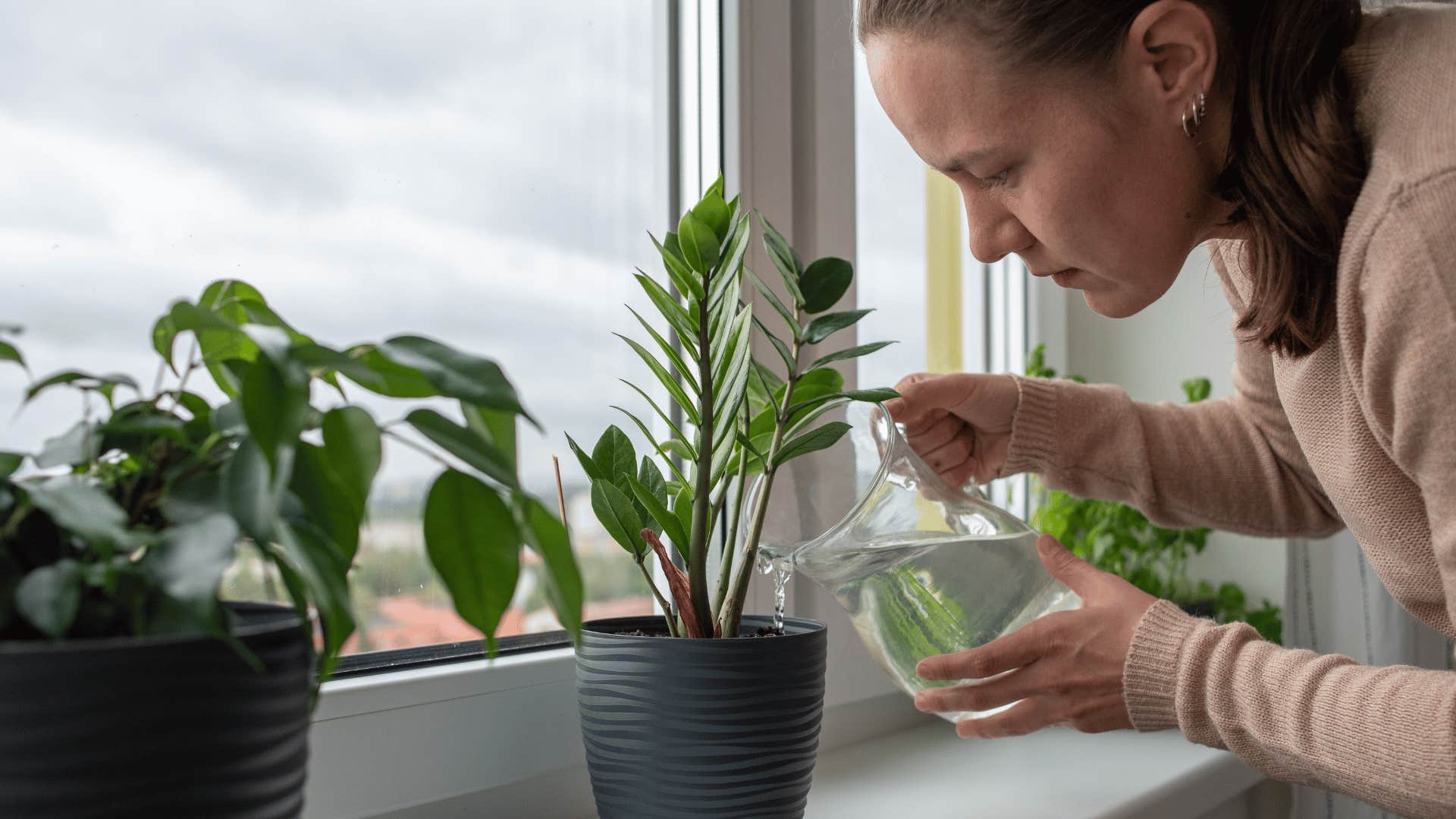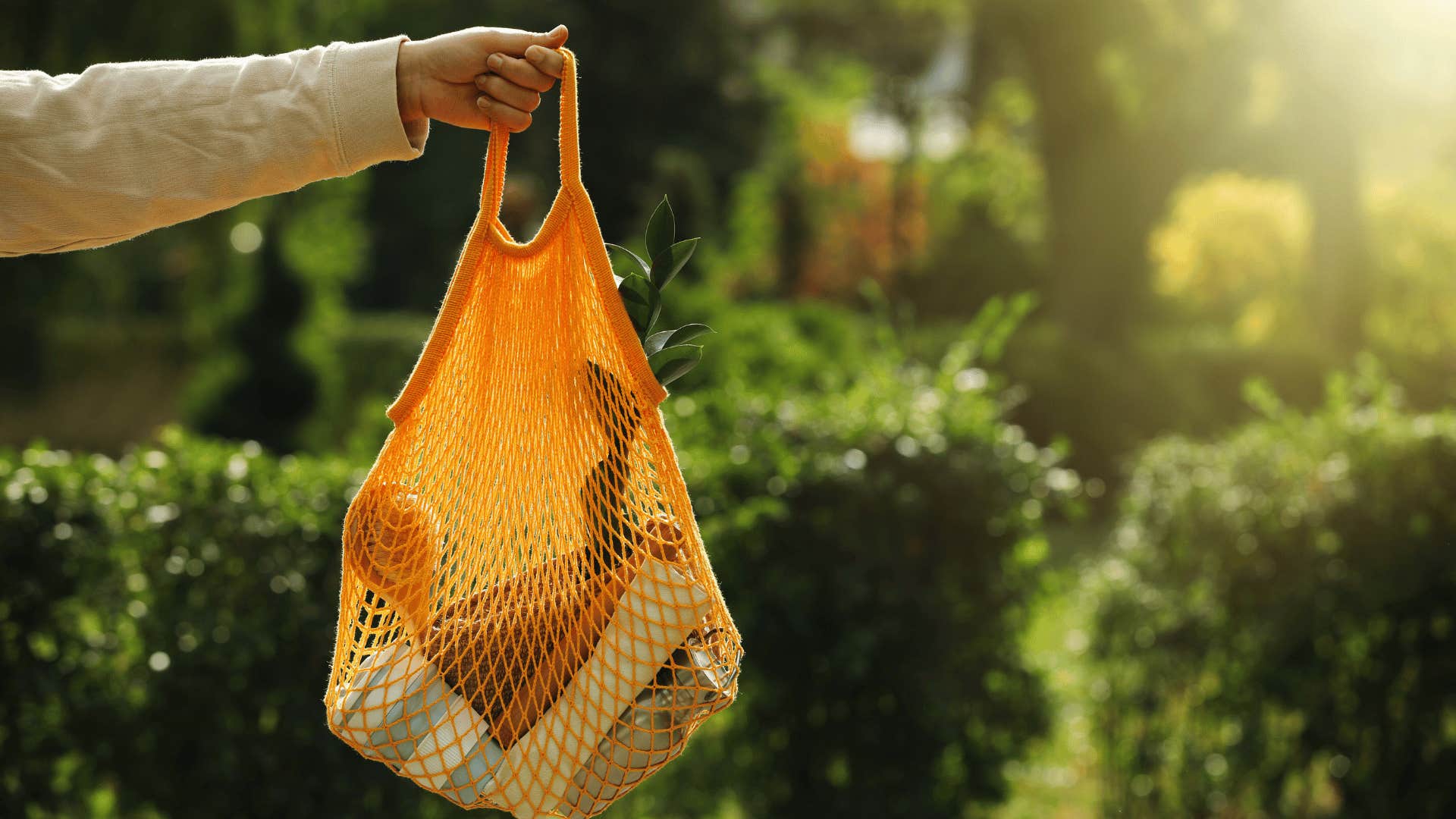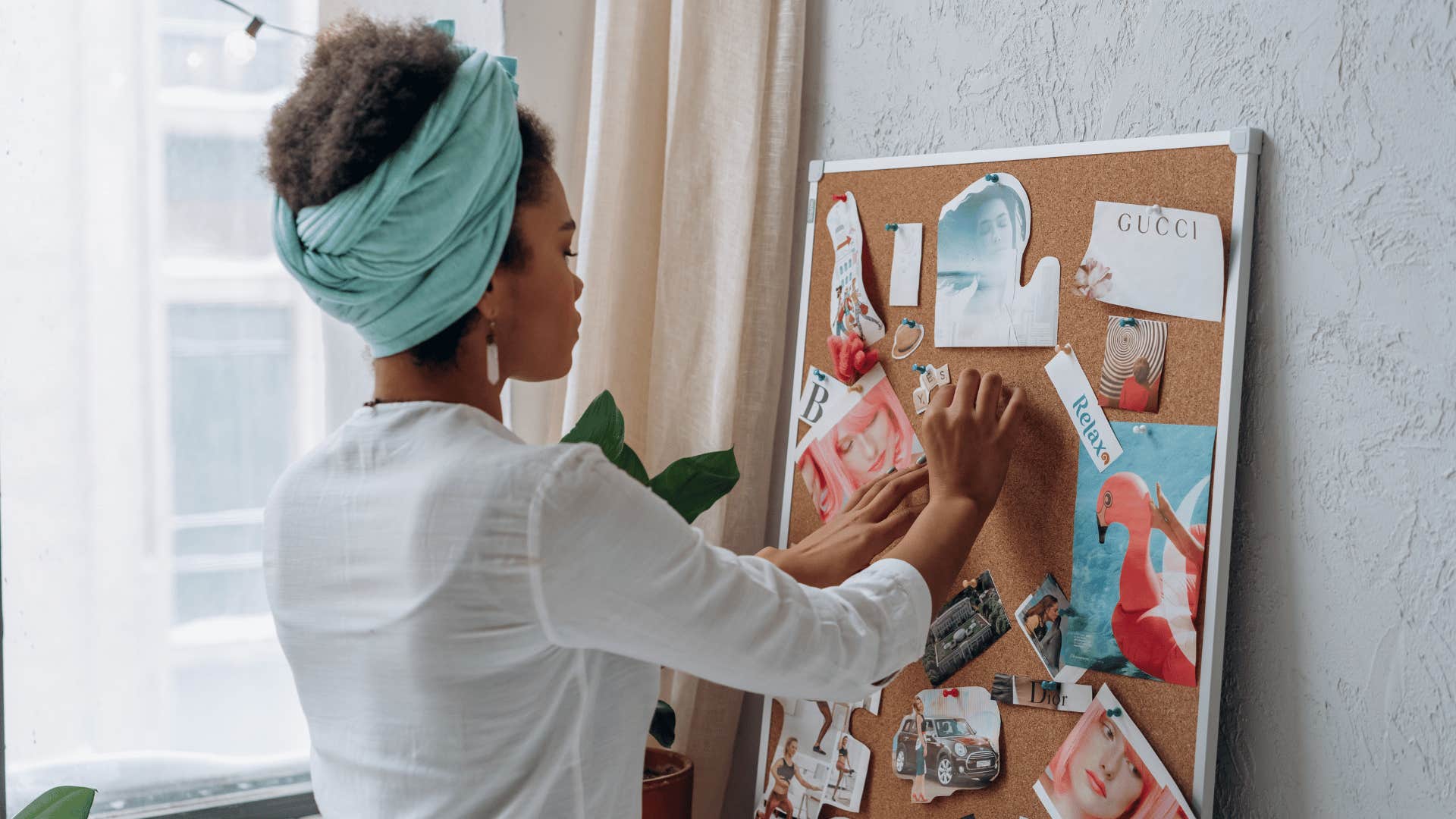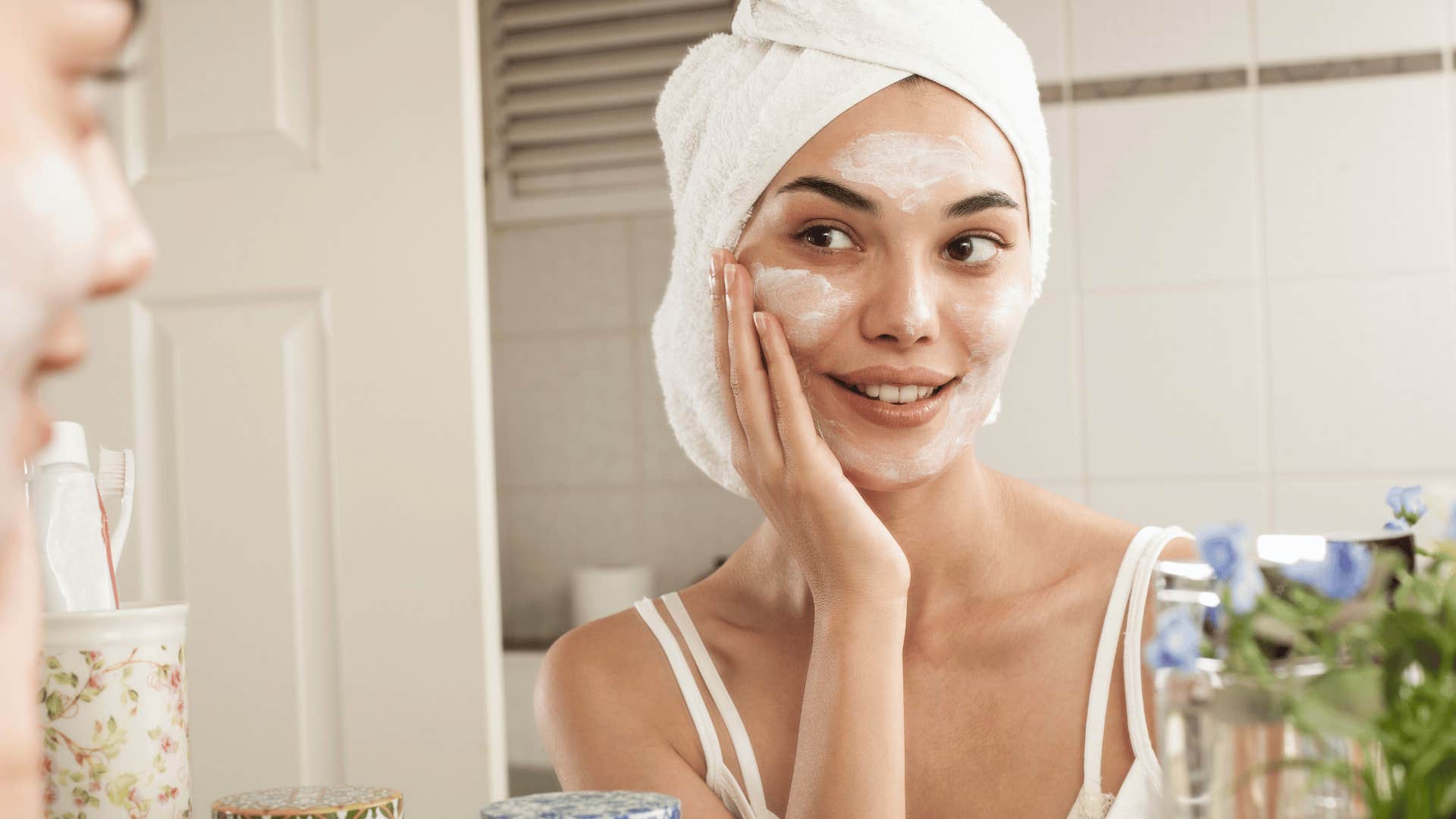11 Things Millennials Thought Would Make Them Happy But Just Made Them Tired
Life has a way of waking you up to just how tiring adulthood can be.
 VN_KK / Shutterstock
VN_KK / Shutterstock Millennials are tired. When the eldest millennials were young, way back the early 2000s, they thought they had everything they needed. Watching TRL and wearing low-rise jeans made their lives complete. They were rich in butterfly clips and hope. The future was more than bright, it was blazing.
Then, their futures actually arrived. In the years that followed that millennial golden era, the world became virtually unrecognizable. Even so, millennials were determined. They still wanted to get everything they were promised — everything they planned for. But as they've grown up, many of the things millennials thought would make them happy have just made them tired.
Here are 11 things millennials thought would make them happy but just made them tired
1. Buying a house
 Anton Estrada via Canva
Anton Estrada via Canva
Millennials were raised to believe that buying a house was the holy grail of successful adulthood, but homeownership has never been easy for them to access, due to the ripple effect of the Great Recession and the housing market crash.
According to a survey from RE/MAX, millennials believe that buying a house is an important milestone, even though they’re concerned about affordability, and 54% of millennials say they were stressed about the maintenance costs of owning a home. Yet they have more than just basic upkeep to worry about. Homeownership involves lots of long-term costs, like mortgage payments, property taxes, and insurance.
Millennials have dreamt about buying homes for so long, but they weren’t prepared for how hard it actually is. They thought that a place of their own would make them happy, but it just made them tired and strapped for cash.
2. Side hustles
 PeopleImages from Getty Images Signature via Canva
PeopleImages from Getty Images Signature via Canva
Millennials came of age in the era of leaning in. Being a girl boss was something to strive for and having a side hustle was the ultimate millennial goal. Millennials fully committed to turning their hobbies into hustles, which they thought would make them happy, but it just made them tired.
Fifty two percent of millennials in the U.S. have some kind of side hustle to supplement their income, which says a lot about the current economy, and 64% spend 5 to 20 hours a week on their side gig, on top of their full-time job commitments, according to research by education and writing platform Academized. Millennials are experts in “polyworking,” which is a fancy way of saying they work more than one job at a time.
Side hustles sound great in theory, but they take a serious amount of time and energy to actually get off the ground. Side hustles are both a marathon and a sprint. Millennials learned the hard way that monetizing their cute little hobbies is exhausting.
Having a side hustle means working after the workday is over. Side hustles were meant to give millennials more than one stream of income, along with freedom and flexibility, but all they really brought was burnout.
3. Minimalism
 Viada Karpovich from corelens via Canva
Viada Karpovich from corelens via Canva
Millennials thought that minimalism would make them happy, but it just made them tired. According to a study published in the journal “Environment, Development and Sustainability,” minimalism “is about deciding to place less emphasis on material possessions in order to find fulfillment in other creative endeavours, hobbies, and interests.”
The minimalist aesthetic is tied to the idea of voluntary simplicity, which is something “people practice simplicity to attain happiness and peace.” For millennials, minimalism captured a “trendy, low-consumption way of life,” but it didn’t make them as happy as they hoped it would. There’s a lot to be said for living a low-key lifestyle, but for millennials, constantly curating what’s in their home is mentally exhausting and more effort than it’s worth.
Buying into the idea that minimalism would make them happy led millennials to make some serious capital “C” choices about their decor that haven’t really panned out over time. All of the furniture that a minimalist millennial owns is gray, beige or worse, greige, a heinously sad combination of the two. At the end of the day, the way their homes are decorated should bring millennials joy, not make them feel tired and washed out.
4. Owning plants
 tataks from Getty Images via Canva
tataks from Getty Images via Canva
Being a plant parent is one of those things millennials thought would make them happy but just made them tired. In their quest to make their lives look perfect for Instagram, millennials invested in plants in a big way. They lined their windowsills with adorable succulents and put a Monstera plant in the corner of their living room. Their feeds featured artsy photos of their plant babies, but their real lives were littered with wilted, droopy plants, fighting for their lives.
Plants are beautiful, calming and good for your mental health, but they also require consistent care. Many ambitious millennials turned their apartments into personal greenhouses, only to realize how much work goes into keeping those precious plants alive. Millennials thought that cultivating greenery in their living space would make them happy, but it was just one more thing to take care of, which just made them tired.
5. Following their passion
 Cecilie Arcurs from Getty Images Signature via Canva
Cecilie Arcurs from Getty Images Signature via Canva
Millennials thought that turning their passion into their profession would make them happy, but it just made them tired. As Erin Cech, the author of “The Trouble With Passion: How Searching for Fulfillment at Work Fosters Inequality,” explained, pursuing your passion through work isn’t always the best idea.
“Passion for your job is everywhere,” she said. “It is in the way we’re supposed to think about the work we do, what it means to have a good job, and at the end of the day, how we are supposed to feel about the jobs we have.”
“Passion won’t insulate you from the stresses of the modern world of work,” she said, pointing out that “one of the concerns about centering your work as a core part of your identity is that no amount of passion for your job is going to mean that an employer is going to keep you.”
Cech shared that finding passion projects outside of your job is a way to actually make yourself happy. Having actual work-life balance means closing your computer and enjoying yourself, outside of your role as an employee.
“Trying to make work fit into a smaller time frame in your life will provide many more opportunities for engaging in activities that are meaningful and fulfilling to you,” she concluded.
6. Special little treats
 LaylaBird from Getty Images Signature via Canva
LaylaBird from Getty Images Signature via Canva
If there’s one thing millennials are experts in, it’s buying themselves special little treats. According to the millennial mindset, every uncomfortable task should be accompanied by something yummy. Running adult errands? Buy yourself a treat. Do you have a doctor’s appointment? Have a treat for being so brave. Do you still work in an office? You definitely need a treat.
The thing about relying on special little treats is that eventually, the treat becomes a normal part of millennials’ lives and it stops making them feel happy. Getting caught in an instant gratification loop is exhausting, and it doesn’t bring millennials true fulfillment.
Older generations think millennials would be drowning in cold hard cash, if they’d stop buying so much avocado toast. As dismissive as that complaint sounds, boomers might not be wrong about this particular issue. Skipping their daily oat-milk latte might be a downer, but saving money will make millennials happier in the long run.
7. Being eco-conscious
 Africa Images via Canva
Africa Images via Canva
As the largest generational cohort in the U.S., millennials have some serious spending power, yet they don’t just buy for the sake of buying. Millennials see themselves as conscious consumers. According to Harvard Business Review, millennial consumers “increasingly say they want brands that embrace purpose and sustainability.”
Yet their wishes and their actions don’t always line up. Millennials might say they want to buy from “purpose-driven brands that advocate sustainability,” but not many actually do. Millennials thought that being eco-conscious would make them happy, but it just made them tired.
When it comes to environmental action, millennials live in the “intention-action gap,” which means they believe in sustainable purchasing, even though they don’t always follow through on it. It takes a lot of intentional effort and disposable income to buy only eco-friendly products, and millennials are short on time and money.
In addition to their practical concerns, millennials are existentially exhausted by the climate crisis. Millennials are tired of hearing how individuals have to be environmentally aware and responsible, when corporations face no repercussions for the harm they cause.
8. Vision boards
 Mikhail Nilov from Pexels via Canva
Mikhail Nilov from Pexels via Canva
Millennials have survived several economic downturns, but they haven’t bounced back the way they thought they would. They took the traditional route, but their college degrees didn’t guarantee steady work. They focused on manifesting the abundance they deserve, but they went a little too hard, and discovered how real spiritual burnout can be.
Millennials thought that making a vision board for every aspect of their life would make them happy, but it just made them tired. Millennials are masters of pushing past their limits, even when they’re not at work. They approached manifestation like they were being graded, and exhausted themselves in the process.
Their execution was harsh, but their hearts and minds were in the right place. As manifestation coach Matt Cooke told YourTango CEO Andrea Miller on the “Getting Open” podcast, when it comes to setting intentions, “You’ve got to be really active, but even before you’re active, you’ve got to be really clear.”
Miller pointed out that making a commitment to manifestation isn’t all-or-nothing. “I feel like people can think of this stuff as hard, and takes a long time,” she said. “And the longer you do it, the deeper and richer and more amazing it can be, but I do feel like you can start to see results and more importantly feel results early on.”
Being gentle with yourself is an essential part of any spiritual practice, as millennials are learning.
9. Getting bangs
 Yuril Zymovin via Canva
Yuril Zymovin via Canva
Back in the late 1900s, millennials styled their hair in ways that would make them cringe now. Bleached tips and chunky highlights were the way to announce how popular they were. Slathering on way too much hair gel and slapping on some butterfly clips was the beauty standard. There are certain looks millennials will never go back to, no matter how much Gen Z wants to revive Y2K fashion.
Millennial women fully bought into the belief that getting bangs would change their life. They weren’t wrong. Their lives did change, just not in the way they imagined. Girls with bangs spent way too much time trying to make them fall right, only to have their precious bangs stick to their forehead whenever the temperature rose above 70 degrees.
Anyone who’s ever watched the seminal millennial show “Felicity” knows how much power a haircut holds. As controversial as millennial hairstyles can be– hello, side parts– most women have made peace with the mistakes they made in the past. They’ve sworn off bangs forever, or at least until their next big break-up.
10. Being on social media
 pocstock via Canva
pocstock via Canva
Millennials grew up in a pre-internet world, but they’ve seamlessly adapted to the way technology’s advanced. They made the shift from cursive writing and dictation lessons to typing on clunky computers. They went from landlines to flip phones to iPhones. Dial-up modems are a distant memory, yet many millennials long for a time when they were less digitally connected.
According to a survey from Deloitte, almost half of millennials said they interact with people through devices more than the physical world. 70% said tech helps them build meaningful connections, but they acknowledged that it also exhausts them.
Many millennials feel overwhelmed by all the software updates, security issues, and subscriptions they have to manage. They worry more about the negative impacts of social media than older generations do. For all the benefits of a digital lifestyle, millennials are definitely feeling tech fatigue. They thought that a picture-perfect Instagram feed would make them happy, but it just made them tired.
11. Starting a skincare routine
 izzetugutmen from Getty Images Pro via Canva
izzetugutmen from Getty Images Pro via Canva
The oldest millennials already celebrated their 40th birthdays and the youngest millennials are on the cusp of 30. They’re in the season of life where skincare is more important than ever, and in true millennial fashion, they’re overcommitting.
Millennials spend a significant amount of time and money on anti-aging measures. They don’t just wash their faces, they exfoliate and buff. They don’t just moisturize, they use under-eye cream, serums and SPF. They take the ritual acts of self-care seriously, which isn’t necessarily a negative thing.
Yet like all things in life, moderation is key. Millennials thought an intensive skincare routine would make them happy, but it just made them tired.
Alexandra Blogier, MFA, is a staff writer who covers psychology, social issues, relationships, self-help topics, and human interest stories.

